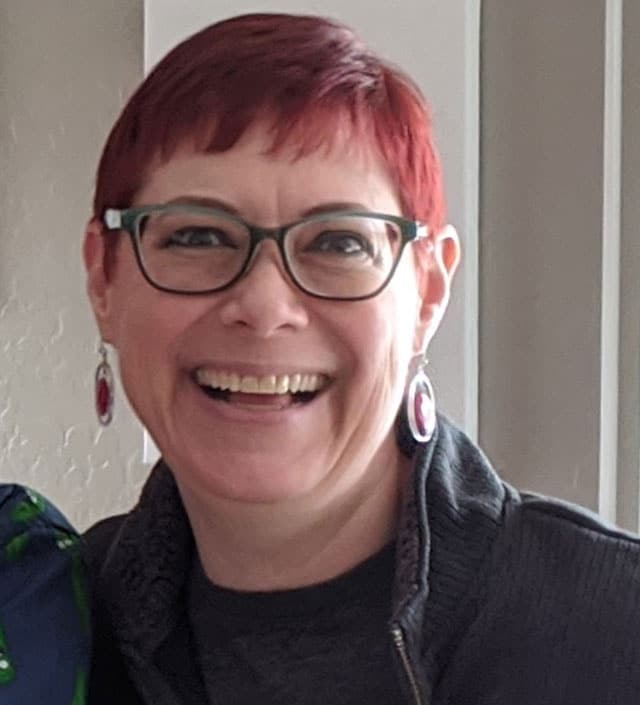Despite progress over the last 40 years, a panel of industry leaders agreed much more needs to be done to bring financial planning to a lot more people — especially Americans who historically have not had access.
They also agreed there needs to be more clarity on who is a financial advisor and what they provide to consumers, although they didn’t agree on how that should happen. The panel, Evolution of the Profession, spoke on Sept. 28 at the Financial Planning Association’s national conference in Phoenix, Ariz. It was led by Elissa Buie, CEO of financial planning firm Yeske Buie in San Francisco, Calif., who has been in the business since 1983.
Christian Nwasike, a panel member and board chairman of the Association of African American Financial Advisors, said he got involved in association management for a sole purpose, something he believes can be accomplished. “I found a problem. A pandemic that is consuming people who look like me, a population of people who by no fault of their own, are limited in access to tools that can help them succeed financially.”
His association’s goal is delivering financial plans to every Black household in America, he told the audience. “And from there we will expand, preaching the gospel of solid financial planning. Why do we do that? We believe that if we were able to increase the bottom line of every household financially, our country will prosper.”
“If we focused in our country, in our homes and communities where people live on less than $3 a day and figure out ways to make their lives better, economic productivity for humans in our country will increase and reverse projections that in eight or 10 years, China’s GDP will triple our GDP, because we have turned into a society of consumers,” Nwasike said. “That is my charge, that is the charge of the 50,000 licensed Black Americans in the industry, and that is why I ask each of you to join me in accomplishing this as well. It doesn’t matter if you don’t look like me … the bottom line is everybody deserves a solid financial plan and a chance at a solid financial future.”
Autumn K.Campbell, a senior lead planner for Facet Wealth in Tulsa, Okla., who joined the financial planning industry in 2016, said she’s excited that the industry is evolving and placing more emphasis on understanding the psychology of humans, which she believes will strengthen the financial advice the profession provides.
“One thing I would say … I would encourage us to continue developing our own awareness of our biases. As a female, as a more youthful person in this industry, I have experienced routine, recurring differentiation of experiences based on my age, my gender, beliefs, etc. Assumptions people make about me are sometimes positive, sometimes inaccurate. It weighs a lot … I’ve worked with many very nice people. Nice is not inclusive. Nice is not progressive. And nice is not making me feel belonging. Nice is not allowing me to have real conversation. Nice is convenient for you, who might be in more power.”
She suggested that if someone is sharing ideas that make you feel uncomfortable and you are the person with more power, recognize that the person is giving you feedback. “They are giving you authentic truth. And if you use your privilege or power to make yourself more comfortable, you are likely hurting the person psychologically or financially,” she added.
As an FPA NexGen leader, she said she knows hundreds of people and is not alone in these feelings. For financial professionals who want to learn more about these issues, Campbell said she would be happy to connect them with people who have more training in this space.
James Lee, president of the FPA Board of Directors and of Lee Investment Management in Saratoga Springs, N.Y., said he echoed Nwasike’s comments. He said he always keeps the words of the late financial planning leader Dick Wagner in mind, that “financial planning is destined to become the most important authentic profession of the 21st Century because of the impact we have on our clients. And my ultimate vision is every American, regardless of income or wealth, has the ability to engage with a competent, ethical financial planner to help them with money decisions, big and small, throughout their entire financial life.”
Daniel Moisand, a principal of the planning firm Moisand Fitzgerald Tamayo, LLC, in Melbourne, Fla., current chair of the Certified Financial Planner Board of Standards and a past FPA president, shared some data that he said was not satisfactory, but encouraging. He noted there are 97,637 Certified Financial Planner (CFP) certificants as of September 1. Approximately 23.7% are female, and 9.2% declare themselves diverse, Native American, Black, Latino, Hispanic, Asian, or Pacific Islander.
Those numbers “suck,” he said, but the needle is starting to move a little bit. With the last round of CFP exams, 71% who took the exam were under age 40, 30% were under age 30, 30% were female, and 18% were diverse. “That’s the kind of metrics that we need to see if the overall population of certificants is going to look more like the overall population of the country. So I am very encouraged by that.”
Moisand, who became a planner in 1990, noted earlier during the panel that he was very encouraged by Campbell’s description of the kind of financial planning she’s experienced since joining the profession about seven years ago. Campbell noted holistic planning is the only kind of planning she’s known, in which she has helped people solve problems rather than sell products.
“It was something that was kind of a dream 30 years ago,” he said. “Being able to focus on stuff that matters more.”
The issue of clarity — who is a financial planner or financial advisor — was also an important topic of conversation for the panel. Most consumers don’t understand that financial advisors, depending on their credentials, are subject to different rules on how they help clients.
Lee said the most important thing to create clarity for the title is for there to be clear standards for competency and ethics. “For example, you can’t call yourself a doctor or a lawyer without having certain requirements and standards in order to call yourself a doctor or lawyer,” he noted. “Financial planning is a profession that is just as important to our clients as being a doctor.”
Along with medicine, law and theology, “financial planning can be the fourth great profession because of the impact we have on our clients’ financial well being. Money touches every part of a person’s life,” Lee said after the panel session.
“We are are a relatively young profession. We are here celebrating the 50th anniversary of the CFP certification,” he added, noting that it took a long time for universally accepted standards to be developed and codified in medicine and law. “So, I’m not frustrated, but I’m glad we’re at the point now where we are leading that discussion and making sure that there is clarity for consumers, practitioners and policymakers on the standards that one should hold for advisors.”
Nwasike stressed that he thinks it’s important for clients to be able to choose with whom they do business. If a client doesn’t have the assets or chooses to pay a commission, they should be able to do that and standards should not prohibit those choices, he said. He said he thinks it’s unfair to impose additional regulations on a profession that’s already burdened with numerous regulations.
Moisand said conceptually, a really good regulatory structure for financial planning would be standards along the lines of what is already in place for CFP certificants. “Most people in the country can call themselves a financial planner without any real background in financial planning. … I am not calling for the CFP Board to have government authority, but just conceptually, you take the standards of the CFP Board, you marry them with some kind of government authority that can enforce, investigate, and has subpoena power, those types of things, and you have a very meaningful regulatory structure for financial planning.”
However, Moisand said he doesn’t see that happening any time soon. “I buy things from salespeople every day; it’s a great support. But it is different than being an advisor and having a fiduciary duty to the client. And that’s why it’s a heavy lift. It’s a huge, huge massive change.”







